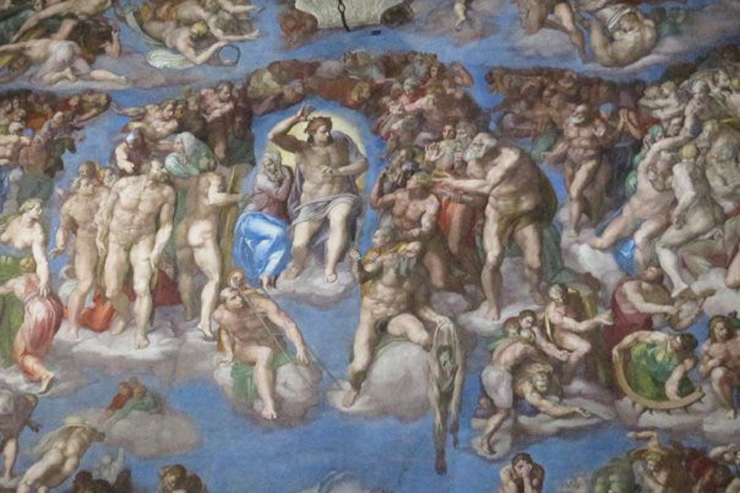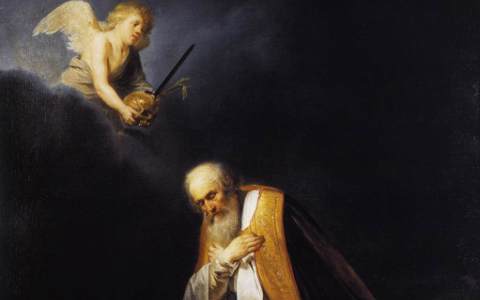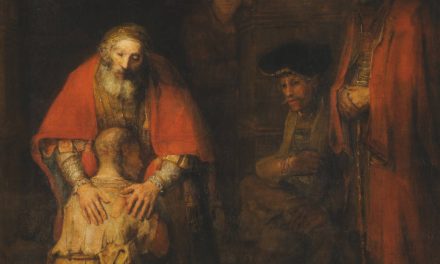
Two Sundays ago, we began working our way through the thirteenth chapter of Matthew’s Gospel and the seven parables that begin with the Parable of the Sower and end with the Parable of the Net. Each of these parables has a particular theme and lesson.
The first four parables teach about the proclamation of the Gospel, the difficulties confronting its reception, and its power to grow and transform both the individual and the world. Let’s recap these four:
- The Parable of the Sower describes how those who hear the proclamation will have different responses to the Word of God, many unfruitful, but one fruitful.
- The Parable of the Wheat and the Tares informs us that in this life the Church will include both those striving to be saints and those content to remain in their sin.
- The Parable of the Mustard Seed foresees the growth of the kingdom from a small group of apostles and disciples into the universal Catholic Church that will eventually reach every corner of the world; but it also describes the working of faith within the individual Christian.
- The Parable of the Leven alludes to God’s grace at work in the world to prepare and nurture those who will hear the Word; and that grace works in the disciple who shares the Gospel with others.
Today’s Gospel (Matthew 13:44-52) presents three parables about the Kingdom of Heaven.
The first two, The Parable of the Hidden Treasure and The Parable of the Pearl of Great Value, teach us that the Kingdom of Heaven is of greater value than anything we can possess in the world.
The Parable of the Net particularly completes the earlier parables on the Sower of the Seed and the Wheat and the Tares, showing that although the righteous and the evil are found together in this life, there will come a future time for each of us where judgment will occur, separating the saved from the damned.
What Do These Parables Mean to Me?
I believe it is vitally important to understand these truths taught by our Lord. Later in this Gospel (Matthew 16:26), Jesus says, “For what will it profit a man, if he gains the whole world and forfeits his life?” Our eternity depends on this.
Being situationally aware is good advice for everyone, anywhere and anytime. When this advice is given, it usually is a reminder to be aware of what is going on around you—to be ready for any physical danger.
Now certainly, each of us should take precautions against bodily harm from both accident, malicious physical and emotional threats from others, and from disease. Whether we seek financial security, good nutrition, preventative healthcare, and protection during this time of pandemic on the one hand and safety from criminals, reckless behavior and nature on the other, Jesus warns us that these are not the dangers we should fear (prepare against) the most.
Jesus teaches, “And do not fear those who kill the body but cannot kill the soul; rather fear him who can destroy both soul and body in hell” (Matthew 10:28).
We live in increasingly dark days in terms of how the world views the Faith. More and more the truths we have been taught are considered bigoted and hateful. Not only our governments, but also people throughout society are refusing to allow Catholics and other people of similar moral and religious convictions the freedom to live according to these truths. Increasingly pharmacists are forced to fill prescriptions that violate their faith, obstetricians are told that they must perform or refer for abortion and to refuse to do so is a violation of basic medical care. And this demand that Christians accept and approve of behaviors we know to be sinful and beliefs we know to be morally evil has intruded deep and wide into the culture and economy.
It would be all too easy to simply go along to get along. Why fight it?
The answer is in the words of Christ. We must speak the truth in the light. We must proclaim it from the rooftops. We are called to acknowledge Christ as Lord and lovingly proclaim His truth. To go along to get along is to love our bodily lives more than God, indeed more than those who do not embrace the truth.
No matter the personal cost, no matter what we might lose, faith in our Lord and obedience to his teaching is more valuable than all the worldly treasures and human relationships combined.
We don’t like to hear about hell these days. After all, everyone goes to heaven, right? Not so fast. Hell is real. Jesus teaches us about hell repeatedly. He tells us in these parables not to get comfortable with sin, even though it is around us as part of our daily experience. There will be a reckoning when the good will be separated from the bad. “The angels will come out and separate the evil from the righteous, and throw them into the furnace of fire, where there will be weeping and gnashing of teeth” (Matthew 13:49-50).
Do you practice situational awareness in regard to your faith? Are you aware of what keeps you from growing more deeply in faith? Are you prepared and willing to lose everything so as not to lose the Lord?
Nothing is more urgent and important in your life.
Into the deep…
Deacon Bickerstaff is available to speak at your parish or event. Be sure to check out his Speaker Page to learn more. Into the Deep is a regular feature of the The Integrated Catholic Life™.
Come and join me on Twitter:
 Please help spread the Gospel. Share on Facebook and other social media.
Please help spread the Gospel. Share on Facebook and other social media.














